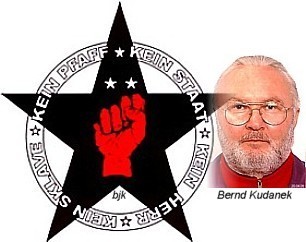 |
|
Freies Politikforum für Demokraten und Anarchisten
PLATTFORM FÜR LINKE GEGENÖFFENTLICHKEITEN
Beiträge können nicht (mehr) eingestellt oder kommentiert werden!
|
|
| Autor |
Beitrag |
palestina libera
Beiträge: 1665
|
 Erstellt: 26.04.16, 19:11 Betreff: Panama and the Criminalization of the Global Finance System Erstellt: 26.04.16, 19:11 Betreff: Panama and the Criminalization of the Global Finance System |
|
|
Economist Michael Hudson says Panama was created as a tax haven by certain sectors of our economy for this purpose. Hudson is a distinguished research professor of economics at the University of Missouri, Kansas City, and he’s a former balance of payments economist for Chase Manhattan bank. He is the author of many books, and the latest among them is Killing the Host: How Financial Parasites and Debt Bondage Destroy the Global Economy.
Michael, let’s begin with a short history of the creation of Panama and how it was bought from Colombia by the United States, and its relevance today vis-a-vis the Panama papers.
HUDSON: Well, Panama was basically carved off from Colombia in order to have a canal. It was created very much like Liberia. It’s not really a country in the sense that a country has its own currency and its own tax system. Panama uses U.S. dollars. So does Liberia.
The real story didn’t come out in the Panama papers. Reporters naturally focused on criminal people laundering money. But Panama wasn’t designed to launder money. It was designed to launder earnings – mainly by the oil and the gas industries, and the mining industry.
Panama and Liberia were long noted as having “flags of convenience.” Oil tankers and mineral ships would register themselves under the flags of Panama or Liberia, or some other country that used the U.S. dollar, not its own local currency.
I first found out about this about 40 years ago, when I was doing a study of the balance of payments of the oil industry. I went to Standard Oil, whose treasurer walked me through their balance sheet. I said, I can’t figure out whether Standard Oil and the other oil companies make their money at the producing end of oil, or at the distributing end of refining and selling it. And he said, “We make our earnings right here in New York, in the Treasurer’s office.” I asked what he meant He explained: “We sell the oil that we buy from Saudi Arabia or the Near East at very low prices to the tanker company that’s registered in Panama or Liberia.” They don’t have an income tax in their country, because they’re not a real country. The oil companies then sell the crude oil to downstream distributors in the United States or Europe – at a very, very high markup.
http://www.counterpunch.org/2016/04/18/panama-and-the-criminalization-of-the-global-finance-system/
Offshore banking in Germany
Consider the benefits of offshore banking, which can offer expats and companies in Germany a range of beneficial international financial services.
http://www.expatica.com/de/finance/Offshore-banking-in-Germany_108016.html
Die deutschen Banken und ihre Offshore-Geschäfte
Zahlreiche deutsche Banken haben intensive Geschäfte mit Briefkastenfirmen betrieben. Das geht aus einer Analyse Tausender Dokumente der "PanamaPapers" hervor. Demnach haben insgesamt 14 deutsche Banken in den vergangenen Jahren mehr als 1200 Offshore-Firmen gegründet oder verwaltet. Häufig wurde Kunden ein Komplettpaket angeboten: eine Panama-Firma zusammen mit einem Bankkonto in der Schweiz oder in Luxemburg.
https://www.tagesschau.de/ausland/panamapapers-banken-101.html
|
|
| nach oben |
|
 |
|
powered by carookee.com - eigenes profi-forum kostenlos
Layout © subBlue design
|

 . . . . . . . . . . . . . . . . . . . . .
. . . . . . . . . . . . . . . . . . . . .